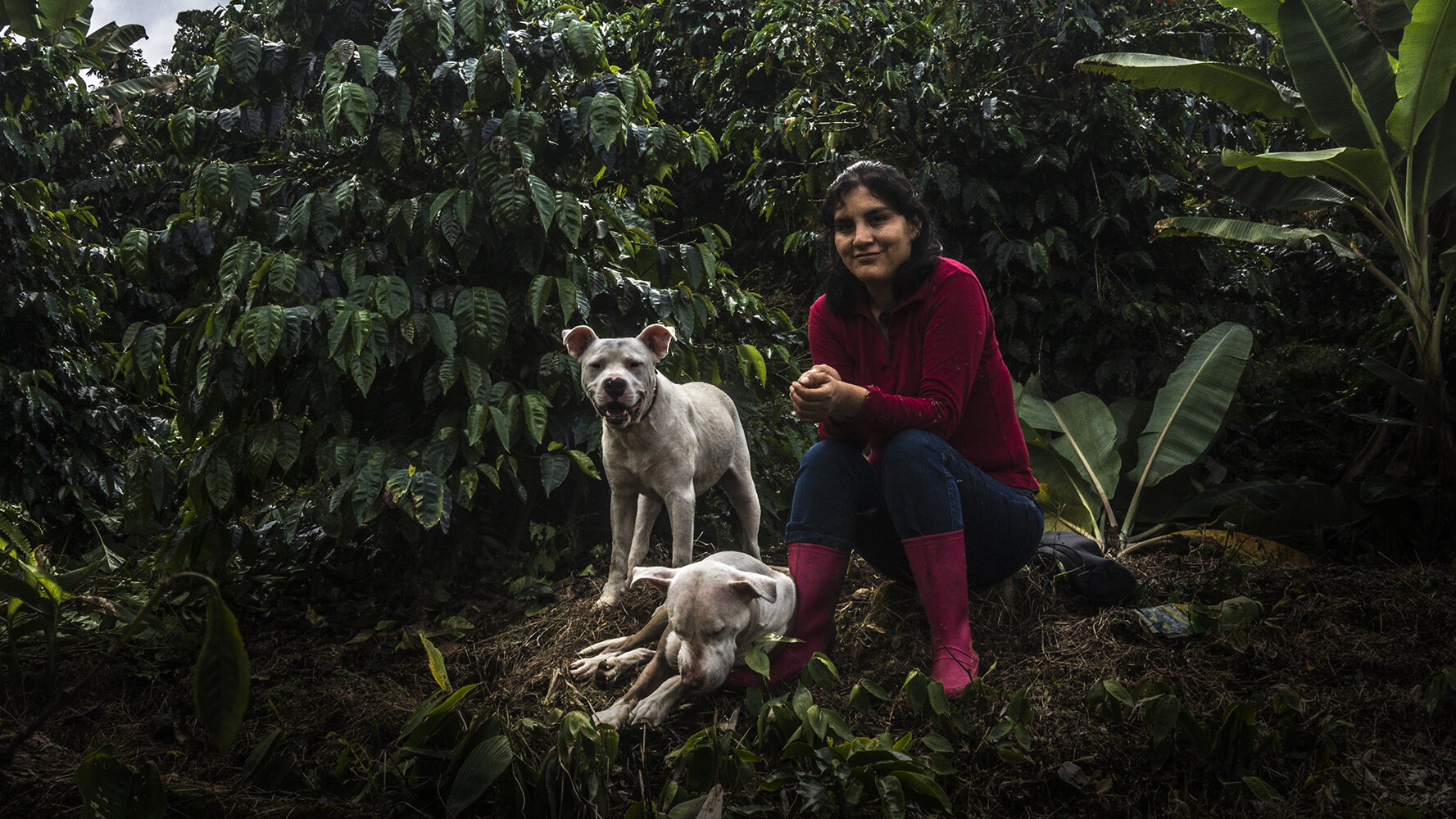For the past few years, we’ve been trying to source more coffees from Peru. Most of Peru’s coffee farms are less than 2-3 hectares in size, and are in regions that lie on the eastern slopes of the Andes, where they benefit from elevation and favorable climate conditions. There’s a lot of variety to be found in Peruvian coffee, and we wanted to explore more.
In 2019, the Trade Office of Peru hosted a trip for coffee buyers to have a better understanding of coffee production in Peru. Andytown was one of the few selected to participate in the program, and we sent Michael off to learn more. Like most coffee trips, the days were long and filled with hours of driving through beautiful terrain, meeting producers, seeing processing sites, and tasting lots, and lots of coffee (no pun intended). By the end of his trip, Michael came back with nearly two dozen samples of coffees that he tasted and wanted us to try for future consideration.
Many farmers in cooperatives came together when the traveling group from the trade commission came by, eager to receive cupping feedback from the visiting coffee professionals.
When harvest season is in full swing in the Cajamarca region, farmers use up any free space to to dry coffee!
There were a few producers we wanted to connect with, and when it came time to start a conversation about purchasing their coffee, we had missed the bus. Our contact at the trade commission told us that they either were unable to get in contact with some of the producers, or that their coffees had already been blended with others. In Peru, cooperatives dominate the landscape, and producers that are in cooperatives will generally mix their coffees with everyone else in the cooperative. Although this isn’t unusual, we were saddened by this news. When we visit producing countries for the first time, we always hope that we can make connections with folks and start a new working relationship. But sometimes, it just doesn’t happen. That said, we haven’t given up hope. We told our contact that in the future, if there’s any possibility to get in contact with these producers before they blend their coffees, we would love to talk more about working with them.
To reach coffee farms in Cajamarca Region in Northern Peru, Michael and the group traveled through unpaved roads. This is pretty common in many coffee growing regions around the world.
Fast forward to early fall of 2020, when we got word from the trade commission that they were trying to connect producers to roasters by organizing virtual meetings. Although the folks Michael met during his trip weren’t going to be in any of these video calls, we still wanted to try and connect to a few people. Michael visited the northern part of Peru, and thought it would be good to meet with people from other regions. That’s when we first met Edith Sagarvinaga, an impressive, young coffee producer who is making a name for her family farm, Finca Tasta. At the end of the call, Michael was determined for us to get coffee samples so that we could purchase some of her coffee, and we were excited to find out that she already has a relationship with one of our importers!
Edith and Ivan Meza Sagarvinaga, owners of FInca Tasta
Edith and her brother Ivan inherited Finca Tasta from their late mother. It’s located several hours east from Lima, the capital of Peru. Edith is a food engineer, and had her mother never decided to move to the forest and start a farm, Edith believes she would have never become a coffee producer. Edith knew that in order to become successful, they had to get more education and training in coffee. In 2014, she received a scholarship from the International Women’s Coffee Alliance to attend the annual Specialty Coffee Association Expo and receive mentorship from other producers. In 2016, she received a scholarship to attend the University of Trieste, where gained a degree in Coffee Science and Economics--an academic program in collaboration with Illy Coffee. In 2020, Edith and Ivan were sponsored by the Peruvian government to come to the US and receive technical training, but their trip was cut short due to COVID and international border closures.
Some of the first cherries ready for picking at the beginning of harvest
After she received her Illy degree, she conducted an experiment and wrote a thesis on processing methods. In her experiment, she analyzed the chemical compounds of coffee to see if it was related to cupping results. She took the same coffee, separated them into three different lots, and processed each one differently. She used a mass spectrometer detector to look into the individual chemical compounds of the coffee, and then cupped them. The results? She found that each coffee contained different chemical compounds that affected flavor and cupping results. In general, we know that different processing methods can affect flavor and score, but now this research provided solid, scientific evidence. This research only furthered her and Ivan’s desire to continue experimentation with coffee processing. Their goal is to provide a range of coffees that meet an array of flavors across the spectrum.
Although we have yet to connect with the producers that Michael met during his trip, we’re excited to start this new relationship with Edith and Ivan. In an odd, roundabout way, we’re still able to work towards our goal of increasing our direct relationships with coffee producers! This year, we have selected their washed coffee for its vibrant sweetness and overall smooth taste. It has notes of green apple, chocolate mousse, and lucuma, a fruit native to the Andean Mountains that is reminiscent of sweet potato, butterscotch, and maple!
Edith with her dogs at the farm
To learn more about Edith, check out this recent article, where she and Mayra Orellana-Powell (Our partner at Catracha Coffee in Honduras) share their thoughts on facing machismo in the coffee industry: Facing Machismo: a Producer’s Perspective






